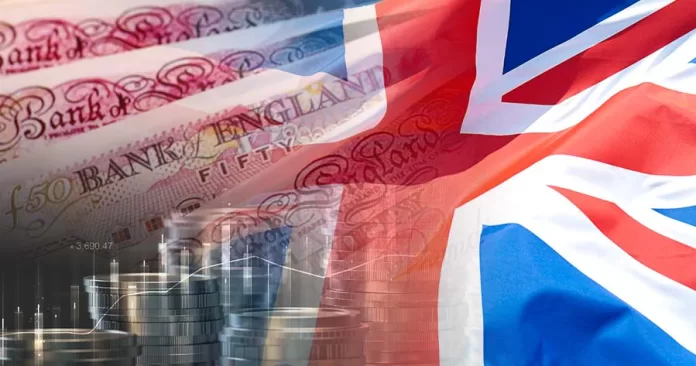Inflation in the U.K. unexpectedly fell in December, giving the government some breathing space and paving the way for the Bank of England to cut interest rates next month following the recent turbulence in financial markets.
The Office for National Statistics said Wednesday that inflation, as measured by the consumer prices index, was 2.5% in the year to December, largely as a result of easing price pressures in the services sector, which accounts for around 80% of the U.K. economy.
That was down from 2.6% the previous month, a reading that was expected to be repeated.
Following the inflation numbers, the interest rate charged on the benchmark 10-year bond fell by a sizeable 0.08 percentage point to 4.81%.
Though inflation has fallen, it remains above the Bank of England’s target of 2%. However, the bank sets interest rates on what it expects inflation to be in the coming year or two, so if policymakers look past an anticipated uptick in coming months, they may decide to cut borrowing rates at their next policy meeting on Feb. 6.
Without any further declines, this year’s upward move will mean that the government will pay out more in interest rate payments, putting pressure on Reeves’ other spending pledges and projections for the public finances.
In the wake of the inflation numbers, markets have moved to price in a growing likelihood of a cut then, to the likely relief of Treasury chief Rachel Reeves, who has faced a stream of negative headlines in recent days over her handling of the economy since Labour returned to power last July for the first time in 14 years.
“[The latest figures] strengthens the case for a 25 basis point interest rate cut in February and lends some support to our view that rates will fall further and faster than markets expect,” said Ruth Gregory, the deputy chief UK economist at the consultancy Capital Economics.

READ ALSO: US House Passes Bill Banning Transgender From Participating Women Sports
As inflation rates have fallen from multidecade highs, central banks have started cutting interest rates, though few, if any, economists think that rates will fall back to the super-low levels that persisted in the years after the global financial crisis of 2008-2009.
Goldman Sachs economist James Moberly said the decline in closely watched services inflation, from 5% to 4.4%, “reinforces our view that the monetary policy committee is likely to cut Bank rate in February”. UK interest rates stand at 4.75%, after cuts in August and November last year.
City economists had forecast inflation would remain unchanged on the previous month. However, inflation remained above the Bank’s 2% target, with experts warning it could rise above 3% before the end of this year.
Critics have argued that her first budget last October will lead to higher inflation than otherwise would have been case. The extra public spending announced in the budget will be largely funded through increased business taxes and borrowing. Some economists think the splurge, coupled with the prospect of businesses cushioning the tax hikes by raising prices, could put upward pressure on inflation and lead to interest rates to be higher.
Inflation is way down from levels seen a couple of years ago, partly because central banks dramatically increased borrowing costs from near zero during the coronavirus pandemic when prices started to shoot up, first as a result of supply chain issues and then because of Russia’s full-scale invasion of Ukraine, which pushed up energy costs.

Grant Fitzner, the ONS chief economist, said: “Inflation eased very slightly as hotel prices dipped this month, but rose a year ago. The cost of tobacco was another downward driver, as prices increased by less than this time last year.
“This was partly offset by the cost of fuel and also secondhand cars, which saw their first annual growth since July 2023.”
The pound gained 0.1% against the dollar, rising to $1.2228 on Wednesday morning as financial markets priced the probability of an interest cut next month at 73%, up from 62% before the inflation figures were released.
The yield – effectively the interest rate – on 30-year UK government bonds, or gilts, fell by about 8 basis points to 5.37%. It had been as high as 5.47% on Monday, the highest since 1998. Reeves has faced sustained pressure over the cost of borrowing in recent days.
In response to the December inflation figures, the chancellor said: “There is still work to be done to help families across the country with the cost of living. That’s why the government has taken action to protect working people’s payslips from higher taxes, frozen fuel duty and boosted the national minimum wage.
“In our plan for change, we were clear that growth is our number one priority to put more money in the pockets of working people. I will fight every day to deliver that growth and improve living standards in every part of the UK.”

